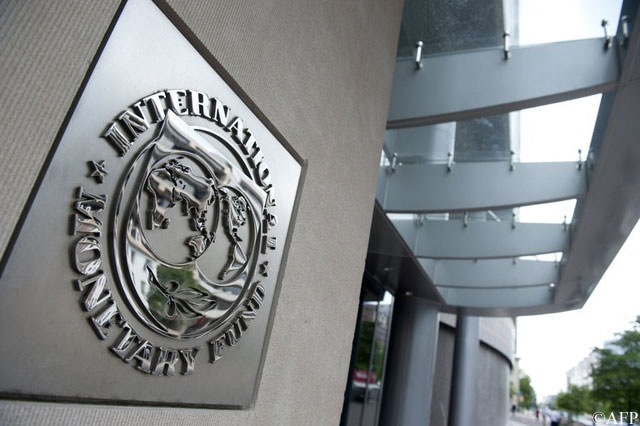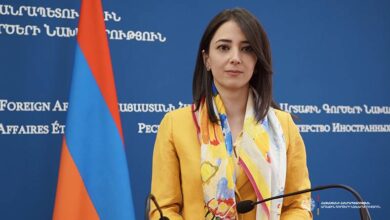
An International Monetary Fund (IMF) team, led by Nathan Porter, held virtual staff-level discussions with the Armenian authorities during April 6–21, 2021 to discuss recent economic developments, the outlook, and the policy priorities ahead. At the end of the visit, Mr. Porter issued the following statement:
“The Armenian economy has been severely affected by the COVID-19 pandemic and military hostilities. GDP dropped by 7.6 percent in 2020 reflecting the decline in services and trade. Annual inflation accelerated to 5.8 percent in March 2021 amid recent global food inflation and dram depreciation. The fiscal deficit widened to around 5½ percent of GDP in 2020, reflecting the impact of government support to vulnerable firms and households and higher health spending, with government debt ending 2020 at about 63½ percent of GDP. The current account deficit narrowed to 3.1 percent of GDP in 2020 and gross reserves, albeit somewhat reduced, remain adequate.
“The recovery is likely to be protracted. While there is uncertainty about the pace of the recovery, our conservative outlook expects growth of around 1 percent in 2021 and 3½ percent in 2022. Inflation is projected to peak in the first half of 2021 before declining to around 4 percent by year-end as the temporary impact of imported food inflation and the pass-through from recent depreciation dissipate. The current account deficit would widen to around 5 percent of GDP in 2021 as activity and imports gradually recover. Reserves are expected to remain adequate, supported by the Eurobond issuance earlier this year. Near-term upside risks come from a faster than expected vaccination roll-out, while additional waves of infection or heightened global financial volatility or trade tensions would delay the recovery and add to external pressures.
“The immediate policy priories are to protect vulnerable households (including displaced Nagorno-Karabakh residents), accelerate planned capital expenditure, and fast-track large-scale vaccinations to support economic recovery. These items should be prioritized within the existing 2021 spending envelope. The 2021 budget deficit—5¼ percent of GDP—appropriately balances the need to maintain policy support with the authorities’ debt sustainability objective. Without significant new macroeconomic shocks, any other initiatives involving current expenditure should be accommodated within the approved budget envelope through reprioritization.
“Looking forward, it is important that Armenia maintains a strong medium-term fiscal framework—underpinned by measures to broaden the tax base, such as turnover and environmental tax reforms and income tax declarations, and current expenditure restraint—consistent with the authorities’ debt sustainability objective of bringing debt-to-GDP below 60 percent by end-2026. These measures are critical to ensure adequate space for future priority social and development spending. Progress on strengthening the fiscal framework should continue, including the extension of the coverage of fiscal risk monitoring, the creation of a pipeline of construction-ready public investment projects, and the implementation of the State Revenue Committee’s tax compliance strategy.
“Strengthening the public investment management framework is a priority to ensure that quality infrastructure underpins near- and medium-term growth. While priority projects in the pipeline should advance without delay, safeguards are needed to ensure that public investment decisions are adequately assessed. In particular, procurement, project management, implementation, and oversight for all projects (including PPPs) should be effective, transparent, and evenhanded across projects and suppliers.
“The monetary stance remains appropriate. The Central Bank of Armenia (CBA) preemptively raised the policy rate by 100 bps in December 2020 and a further 25bps in February 2021 anticipating the rise in inflation from a sharp increase in global food prices and dram depreciation. The CBA should continue to carefully monitor the inflation outlook and stand ready to adjust its monetary stance as necessary, allowing the exchange rate to be a shock absorber. Although there are no signs of financial sector strain, the full impact of the pandemic is still unfolding, highlighting the need for ongoing supervisory vigilance in case action is necessary. Despite the rise in NPLs to 7.3 percent in January, banks remained well capitalized and liquid.
“Structural reforms to further strengthen governance, improve the business environment and access to financing, and increase economic inclusion need to be accelerated to achieve faster, inclusive, and private-led growth in Armenia.
“The mission would like to commend the Armenian authorities for their commitment to the IMF-supported program which has been on track through the third review. Since then, all end-December quantitative performance criteria have been met and actions for structural benchmarks have advanced.”








